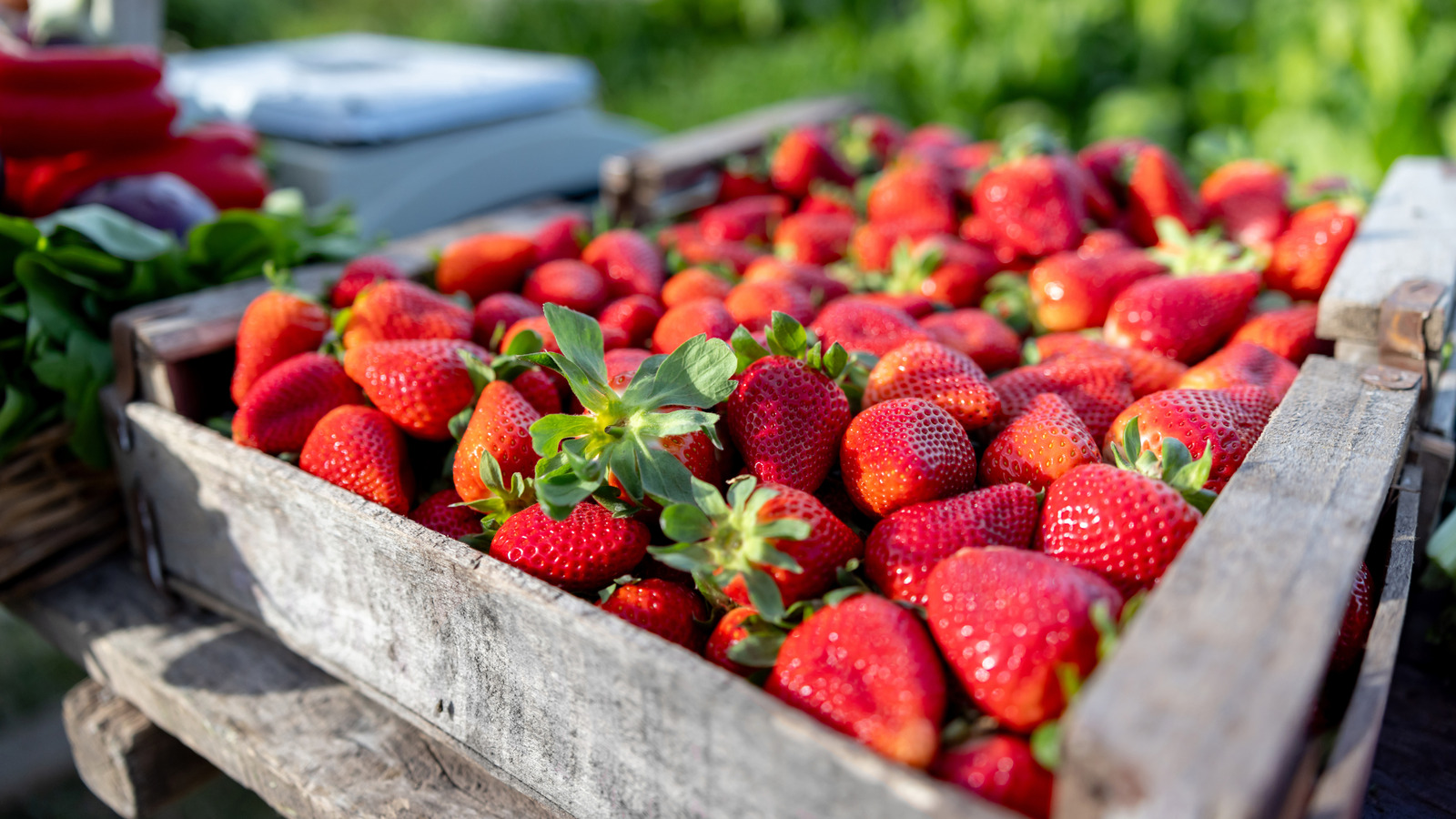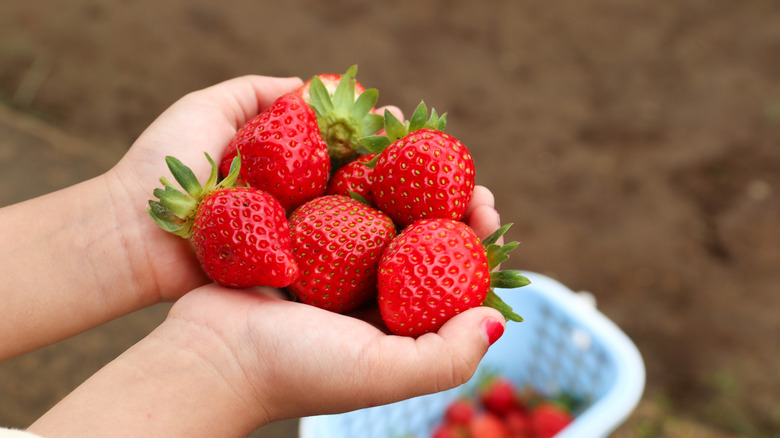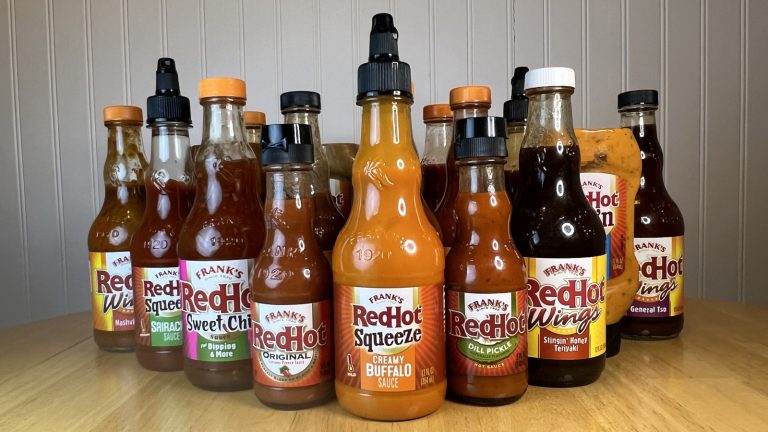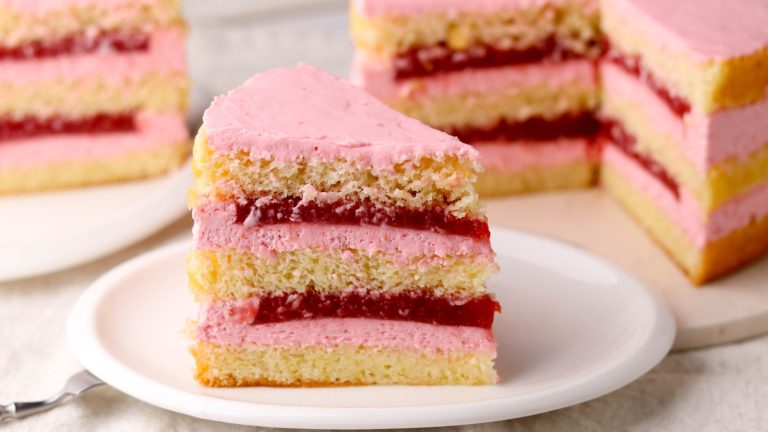From biting into one fresh to pairing a bowl of them with homemade cream, it’s hard to beat the juicy goodness of strawberries. There are so many creative ways to enjoy strawberries, all of them celebrating the fruit’s summery bite and balance of sweetness and tartness. Unfortunately, strawberries often top the Environmental Working Group’s annual “dirty dozen” list. Out of all produce, it’s the fruit that contains the most pesticides. Of course, that doesn’t have to mean we must suffer a dearth of strawberries. While it’s a good idea to buy organic, that can be pricey. In this case, the real lifesaver is just knowing how to wash this fruit well — a game-changer on that front is baking soda.
Simply running cold water from your kitchen sink over strawberries for 10 to 20 seconds is effective at getting rid of the majority of pesticides’ residue, but if you want to get closer to removing it all, take the extra step with this pantry staple. Add one teaspoon of baking soda and four cups of water to a bowl before soaking the berries for a few minutes. Afterward, rinse them under the faucet with that cold water, dry them, and enjoy your extra clean fruit. Since baking soda is an alkaline salt, it is just abrasive enough to scrub off what water alone misses, all without compromising the integrity of your fruit.
Why it’s important to thoroughly wash your strawberries
Strawberries don’t have handy protective peels, so they’re fairly susceptible to everything from everyday dirt to chemicals. According to the EWG’s website, 75% of nonorganic produce samples contained pesticides — that number shoots up to 95% for “dirty dozen” fruits like strawberries. Two of the most commonly found pesticides are fludioxonil and pyrimethanil, which both pose serious health threats. A proper scrub, especially on peel-less fruit like strawberries, is essential. Even when you do buy organic, you want to remove dirt as well as potentially harmful bacteria.
Additionally, be sure to store your strawberries (unwashed) until you’re ready to use them, and only wash what you’re going to eat. They’ve already got moisture in them, and so even if you dry them well, cleaning too early helps speed up spoilage. Strawberries generally last five to seven days in the refrigerator in an airtight container if you follow this guideline. Just remember to check if your strawberries have gone bad first.
Alternatives to using baking soda for an effective wash include vinegar — a five- to 20-minute soak in three cups of water plus one cup of vinegar with a rinse and dry afterward — as well as special produce washes. However, the latter means spending more when you likely already have baking soda on hand, while the former may leave a subtle vinegar taste behind. Baking soda ensures a good scrub and delicious strawberries to confidently enjoy, free of any strange aftertaste.






